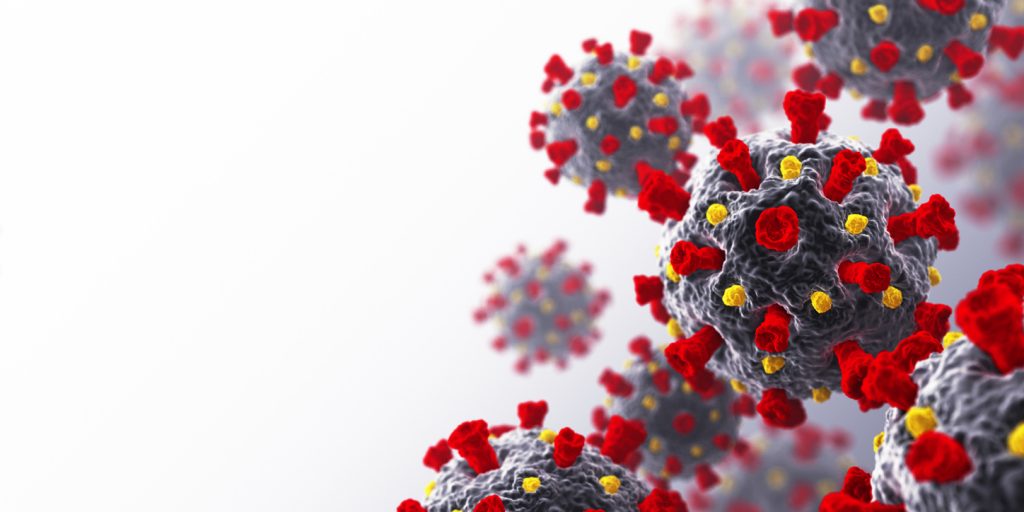
Defining a “New Normal” in Clinical Research to Support the World’s 336,747 Research Studies
By: Jennifer Goldfarb – MSN, RN, CCRP
As of April 21, 2020, according to clinicaltrials.gov, there were 336,747 research studies registered by organizations in all 50 states and 210 countries throughout the world. Clinical Research is a delicate ecosystem within healthcare that can be easily advocated for as an essential healthcare service. It is a highly complex, intensely regulated and regimented, environment. It is a critical component of healthcare that drives scientific and medical advances to promote health and treat illness. This environment has suffered unprecedented disruption and chaos during this pandemic. While people hunker down in their homes, waiting for this storm to pass, clinical research conduct is being adapted, paused, and even discontinued, in every therapeutic area.
What is the impact of potentially disrupting 336,747 research studies across the globe due to challenges caused by the pandemic?
These challenges include necessary quarantine, clinical research site staff and study participant COVID-19 infections, site closures, supply chain disruptions, travel limitations, and stay-at-home orders. The impact will vary for each individual study, based on the nature of the research, the disease and investigational product being studied, the geographical location of the study site, and other details. The impact on our public health in the years to come is unknown; however, it is hard to believe that it will not be felt. The way we adapt now may act to minimize harm, both now and in the future.
How do clinical research sites adapt to minimize the disruption, while protecting the safety of clinical research participants and maintaining the integrity of the research?
On March 18, 2020 the FDA released the “Guidance for Industry, Investigators, and Institutional Review Boards” to help address the many concerns related to the conduct of clinical research during the COVID-19 pandemic. They updated this guidance to include a Q&A appendix on April 21, 2020.
These challenges include necessary quarantine, clinical research site staff and study participant COVID-19 infections, site closures, supply chain disruptions, travel limitations, and stay-at-home orders. The impact will vary for each individual study, based on the nature of the research, the disease and investigational product being studied, the geographical location of the study site, and other details. The impact on our public health in the years to come is unknown; however, it is hard to believe that it will not be felt. The way we adapt now may act to minimize harm, both now and in the future.
How do clinical research sites adapt to minimize the disruption, while protecting the safety of clinical research participants and maintaining the integrity of the research? On March 18, 2020 the FDA released the “Guidance for Industry, Investigators, and Institutional Review Boards” to help address the many concerns related to the conduct of clinical research during the COVID-19 pandemic. They updated this guidance to include a Q&A appendix on April 21, 2020.
Dr. Anand Shah, M.D., FDA Deputy Commissioner for Medical and Scientific Affairs, emphasized that clinical researchers must prioritize the study participant’s safety. Dr. Shah said that we must find the delicate balance of supporting ongoing clinical research in compliance with good clinical practice and minimizing risks to trial integrity, while also safeguarding the health and well-being of study participants.
The clinical research sites located across the country and conducting research in multiple therapeutic areas, have always prioritized and ensured study participant safety and quality data collection and reporting. This has been achieved through dedicated and experienced investigators and staff, expert project management, and quality oversight. We must not lose sight of these priorities, even in the thick of COVID-19, with its relentless interference in our daily lives. We instead have risen to the challenge, like many of our clinical research colleagues throughout the world, to ensure that we do everything to protect participant safety and trial integrity.
Sponsors, CROs, sites, and Institutional Review Boards are partnering to evaluate each study individually, and adapt each study to best support the needs of its participants. Advanced planning and effective communication have been the keys to success. Study visit schedules, based on the study protocol’s requirements for safety and efficacy assessments, are being adjusted far in advance, with clear contingency plans in place. Study visits are not only important for their required assessments but also because they may provide an opportunity to supply study participants with study drug, supplies, and support.
The clinical research community is working with sponsors to operationally support any protocol modifications to allow for phone and virtual visits. We have put new processes in place to protect participant safety, including screening procedures recommended by the CDC. We have adjusted participant visit schedules, in consultation with sponsors, to eliminate unnecessary in-person visits. We have accommodated remote monitoring visits, often facilitated by the use of amazing CTMS systems, including many that allow for electronic source and electronic regulatory documentation. These are just a few examples of what clinical research has done to support our study participants and research studies during this difficult time. We add to this list of accommodations every day, without hesitation, and will continue to do so over the coming months, and years, as needed.
While there are still many unanswered questions about the impact of COVID-19, one thing that seems clear is that the return to normal will be gradual. It will look different from the past, COVID-19 having forever changed our “normal” situations. Clinical research sites must plan now to be prepared for this ongoing adaptation to our “New Normal” so that we can continue to conduct clinical research. This is essential because there is one thing that will not change, that we will always need the clinical research endeavor and the clinical research professionals who support scientific and medical advances to promote health and treat illness.

Society of Clinical Research Associates (SOCRA) 27th Annual Conference
The Author –
Jennifer Goldfarb, MSN, RN, CCRP is a Clinical Research industry expert consultant and leader with more than 25 years of clinical nursing and research operational experience. She is the VP of IMA Clinical Research, a nationwide network of clinical research sites performing high quality clinical research in multiple therapeutic areas.
She has been active with SOCRA since 2003 and currently serves as Treasurer.
In this blog, Jennifer Goldfarb has discussed the influence of disrupting research studies on public health as a result of increasing challenges posed by COVID-19. She has also talked about the importance of clinical research sites in safeguarding the health of the participants. It is also essential to follow all the guidelines issued by the FDA. But, to understand and follow FDA guidelines, students need to join a top-class institute to accomplish the clinical research certification program.
The increasing challenges through stricter measures for conducting research and other things have definitely affected many labs worldwide, especially those countries where measures are even stricter.
COVID-19 is a global pandemic that is currently happening globally. It is the most devastating global health catastrophe ever reported. Novel Coronavirus is a genetically altered strain of Severe Acute Respiratory Syndrome Coronavirus 2 (SARS-CoV-2) named as 2019-nCoV. COVID-19 is a potential Zoonotic illness that wreaked havoc on world health, and social, and economic status, resulting in a severe economic downturn. Also, the Covid-19 outbreak has been declared the deadliest pandemic in world history, killing millions of people. Scientists from all over the world are working hard to develop the best diagnostic test, vaccination, and specific treatment course to combat the outbreak.
https://centralbiohub.de/biospecimens/covid-19
In the face of the pandemic, clinical research has shown resilience by adapting to ensure participant safety and maintain research integrity. Collaborative efforts between stakeholders and proactive measures underscore the commitment to advancing medical knowledge despite challenges, paving the way for a new normal in research conduct.